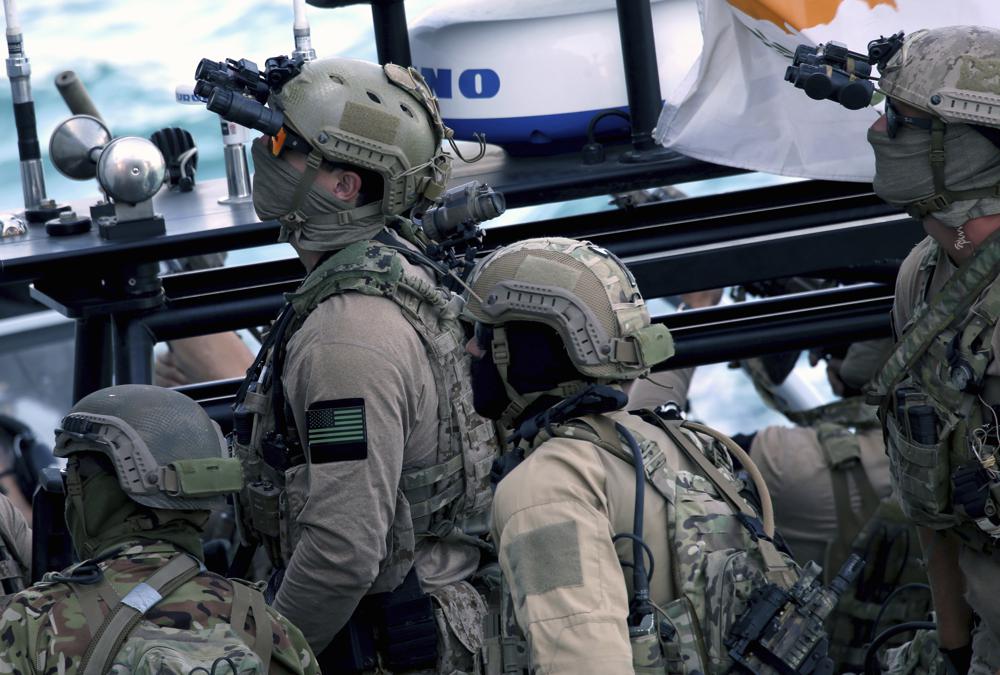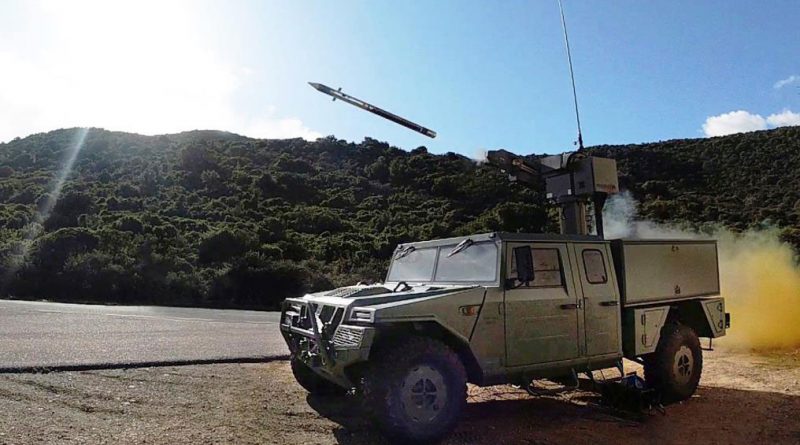
Kathimerini Greece Newsroom
by Vasilis Nedos
Last week, Ankara used the reference to the "Republic of Cyprus", the legitimate and internationally recognized state entity on the island of Cyprus, in the ongoing regional plans of NATO as a pretext to derail the process.
Cyprus' positioning at the center of Turkish foreign policy in the upcoming period goes beyond its steadfast position, which legitimizes the consequences of the 1974 invasion. Cyprus is increasingly being integrated into Western defense planning, with countries such as the United States and France engaging in bilateral agreements that gradually bring Nicosia to the tables it was previously absent from.
Nicosia regularly grants permits for the stationing and deployment of forces on its territory, and participates in joint exercises, while its ports host NATO fleet ships. Increasingly, Americans seek permission to use the Nicosia FIR (Flight Information Region), both for the flight of US military aircraft and the passage of Unmanned Aerial Vehicles (UAVs). It is also worth noting that units of the US Special Forces, known as the "Navy Seals," have conducted exercises in the Republic of Cyprus, in the presence of National Guard personnel. A U.S. Navy SEAL special forces operator, front, and colleagues during a joint U.S.-Cyprus military drill at Limassol port on Friday, Sept. 10, 2021. AP Photo/Philippos Christou
A U.S. Navy SEAL special forces operator, front, and colleagues during a joint U.S.-Cyprus military drill at Limassol port on Friday, Sept. 10, 2021. AP Photo/Philippos Christou
The use of Cypriot airspace by the US Air Force with permission from Nicosia is a significant development. However, even more significant is the signal sent by Washington regarding the lifting of the arms embargo for the year 2023, subject to annual renewal.
According to information from "K" (newspaper), Cypriot authorities are already engaged in extensive contacts with the Americans regarding systems that will equip units of the National Guard's Special Forces. It is certain that contacts will gradually progress towards enhancing the National Guard with heavier weaponry.
Furthermore, the Republic of Cyprus is actively and effectively engaging in the framework of common defense procurement capabilities at the EU level. It is already involved in approximately 15 programs of Permanent Structured Cooperation (PESCO) and is swiftly moving within the scope of the European Defence Fund (EDF) and the European Defence Industrial Development Programme (EDIDP).
France, Belgium, Cyprus, Hungary, and Estonia united for the joint acquisition of Mistral 3 ground-based #airdefence system.
— MBDA (@MBDAGroup) June 21, 2023
A significant step towards enhanced European defence #capabilities
Press release: https://t.co/1uBUd6pigp pic.twitter.com/DgFK3nRYma
An indicative example is that yesterday, June 21, 2023, the Republic of Cyprus, together with four other countries (France, Belgium, Estonia, and Hungary), signed a Letter of Intent for the joint procurement of Mistral 3 air defense systems, an older version of which is already in use by the National Guard. The letter is signed at the initiative of the French Ministry of Armed Forces and with the support of the company manufacturing the missiles, MBDA, and the French Directorate General of Armaments.
The Mistral 3 is an air defense system with missiles that feature infrared imaging detectors and advanced image processing capabilities. It can engage targets with low thermal signatures, such as unmanned aerial vehicles (UAVs), rotary engine-propelled missiles, and high-speed attack craft over long distances. The cooperation between the Republic of Cyprus and the French is not new. Last autumn, Nicosia granted permission that allowed the testing of the AKERON MP anti-tank system as part of the European EDIDP, which had already stirred controversy with Ankara at the time.
[This article was translated from its Greek original]































